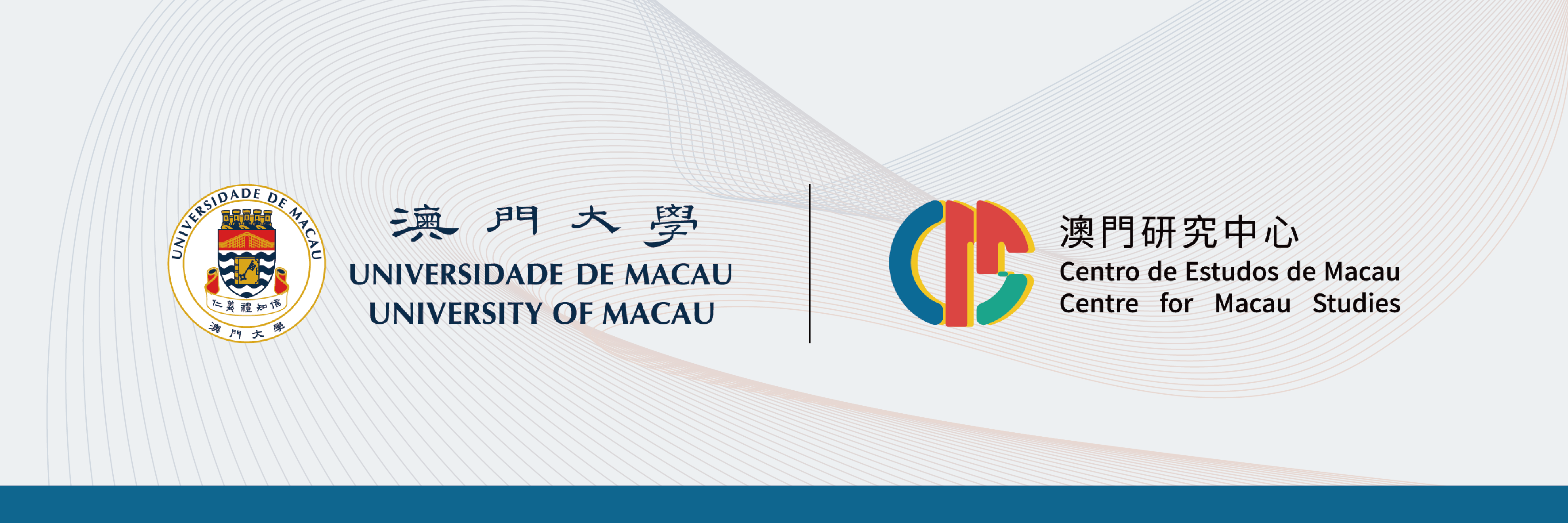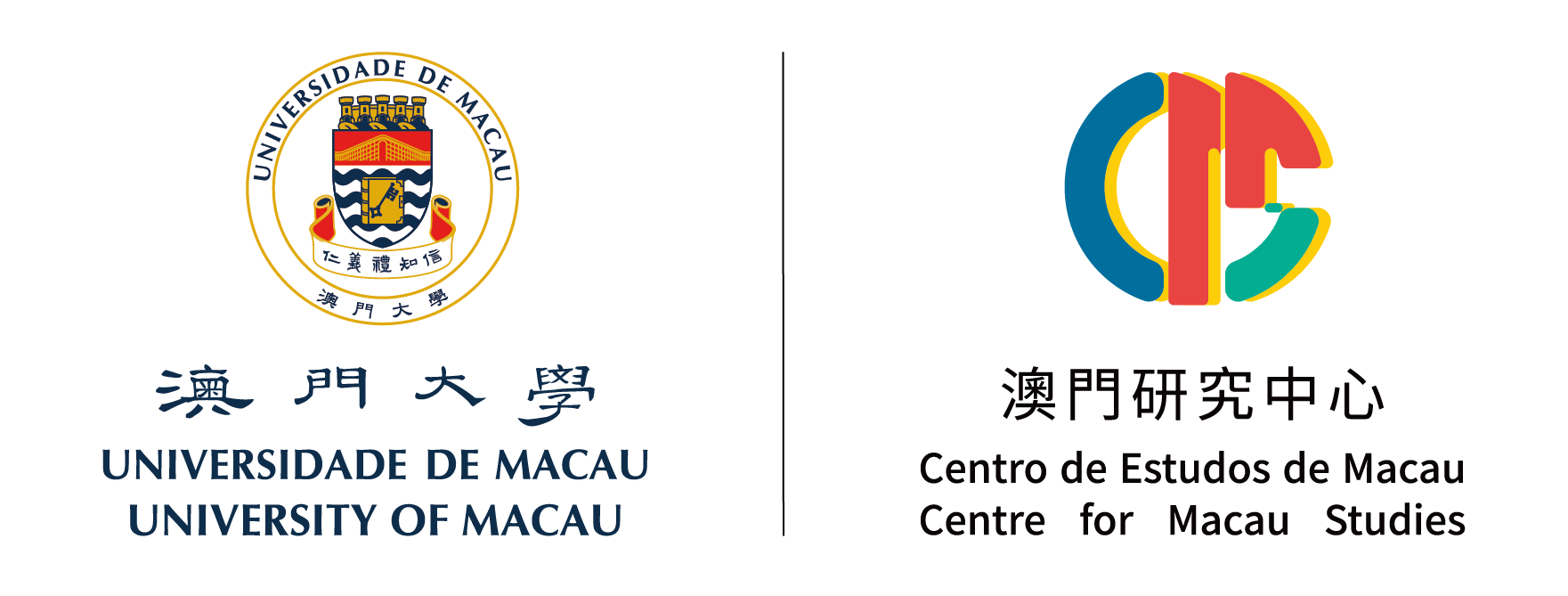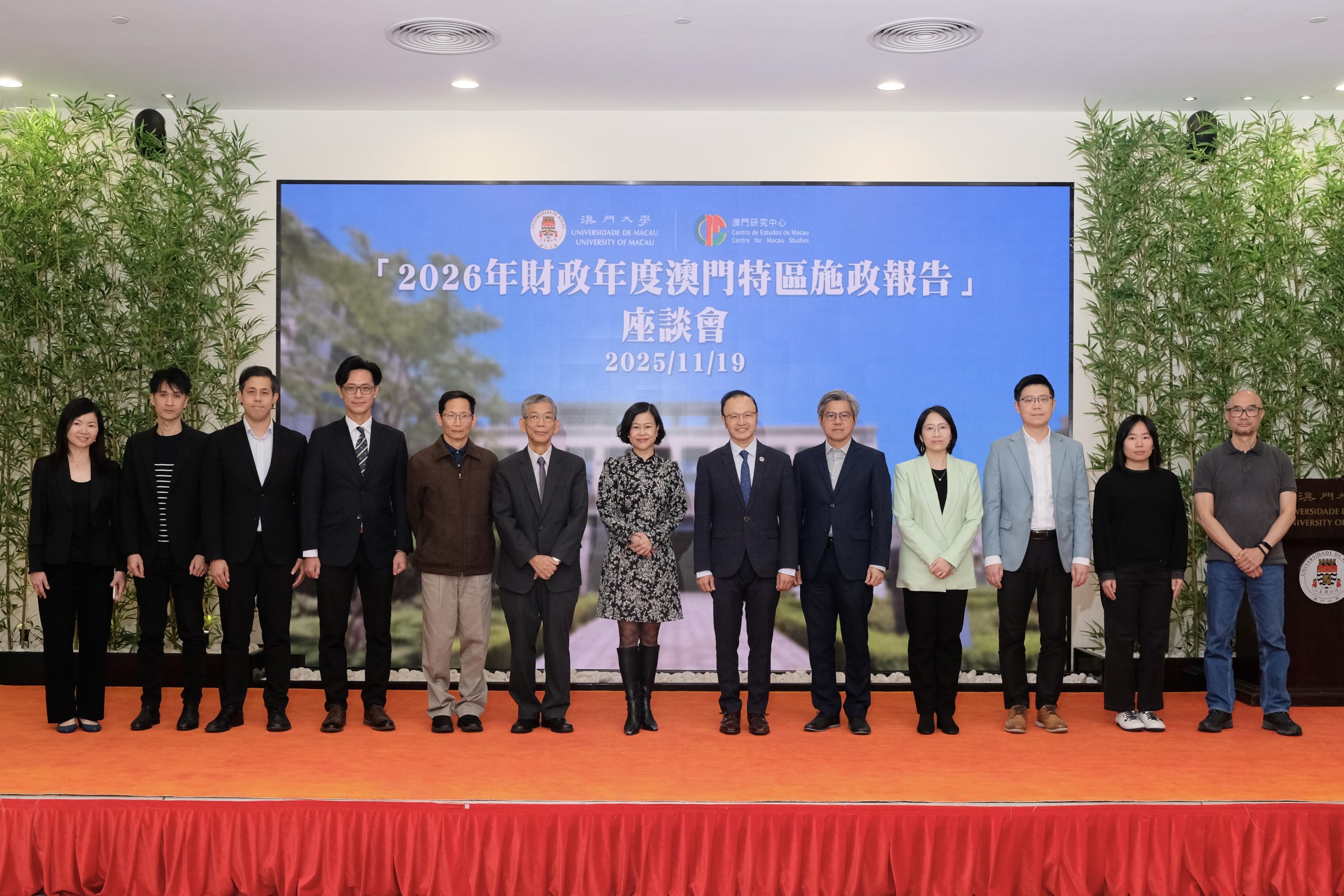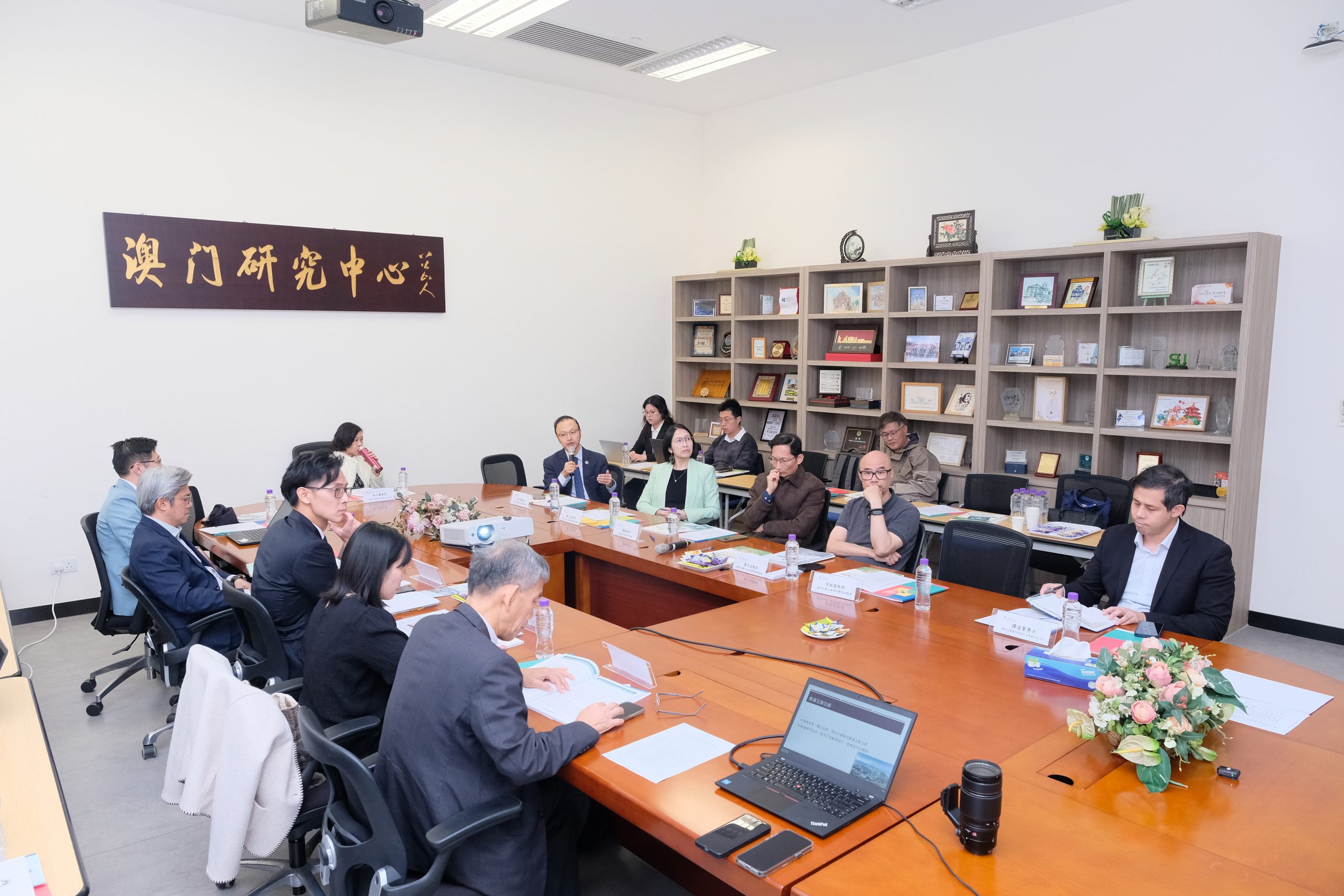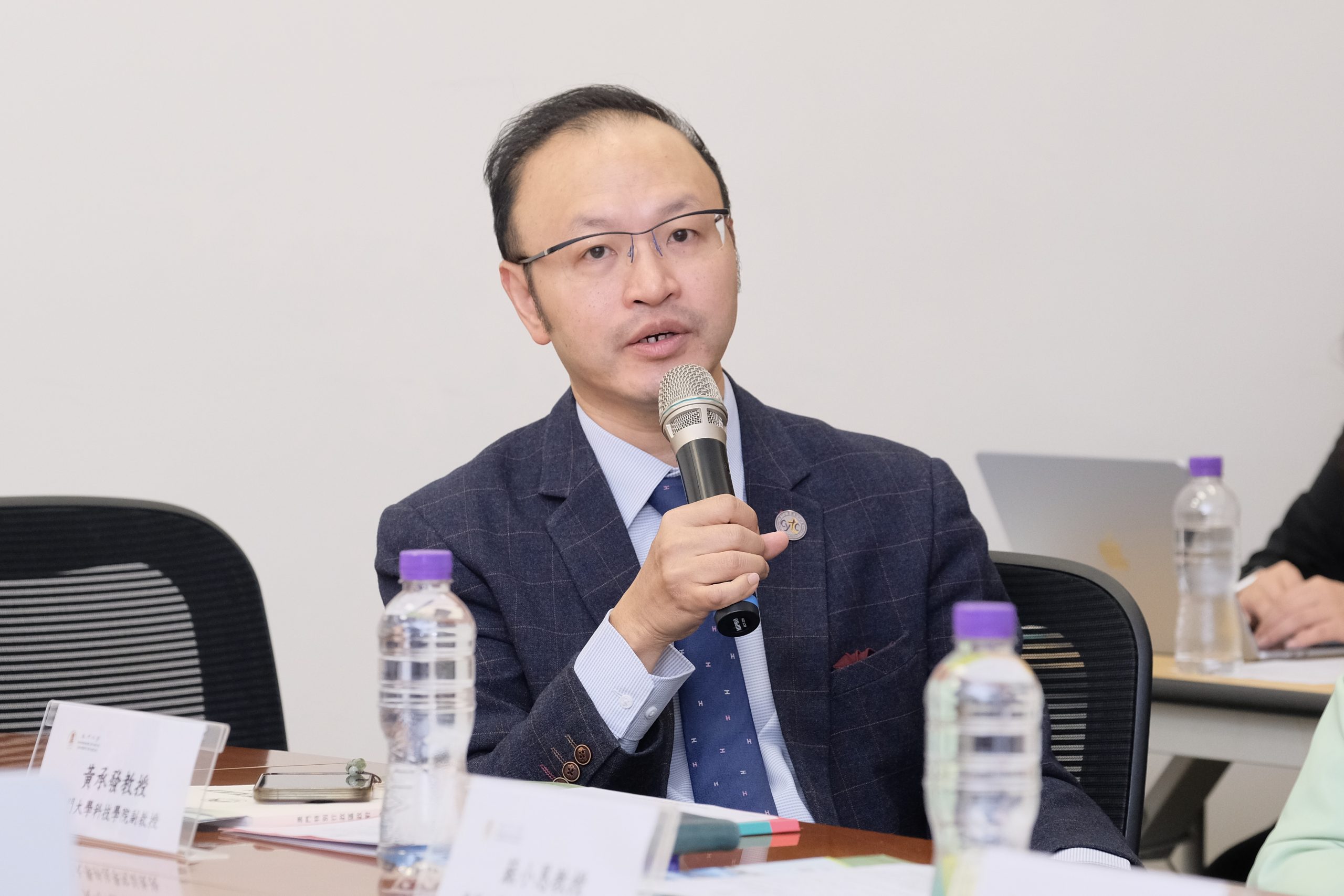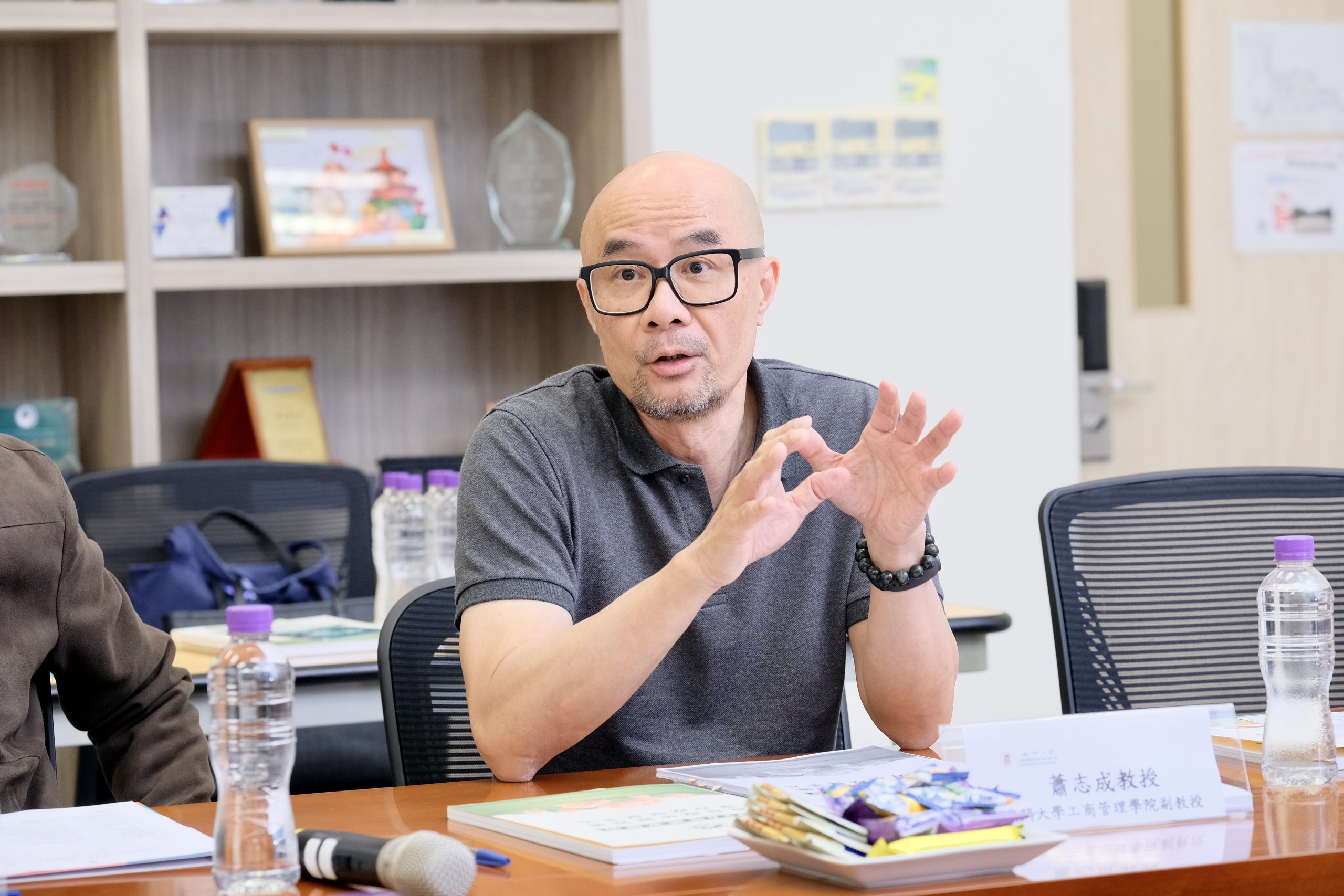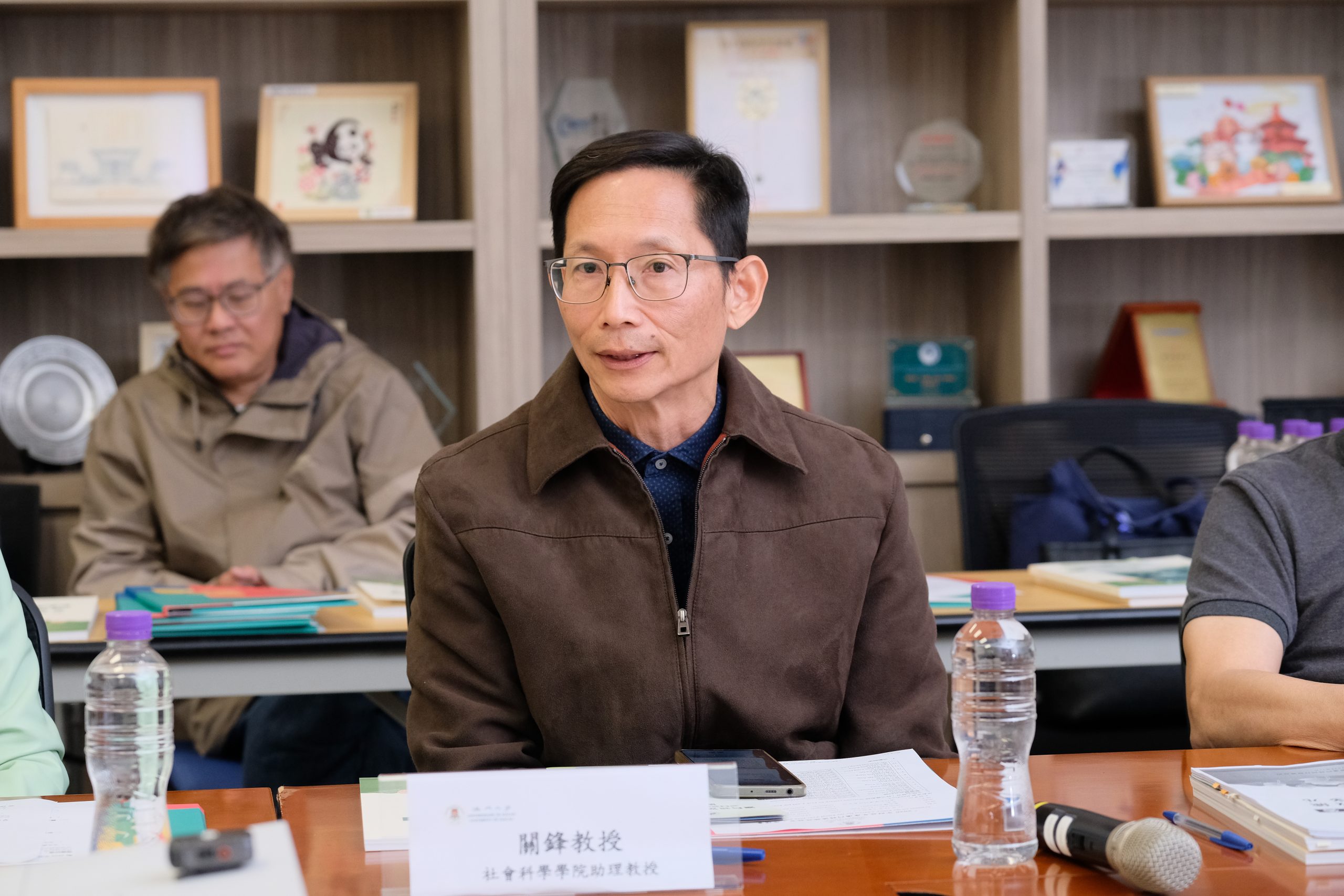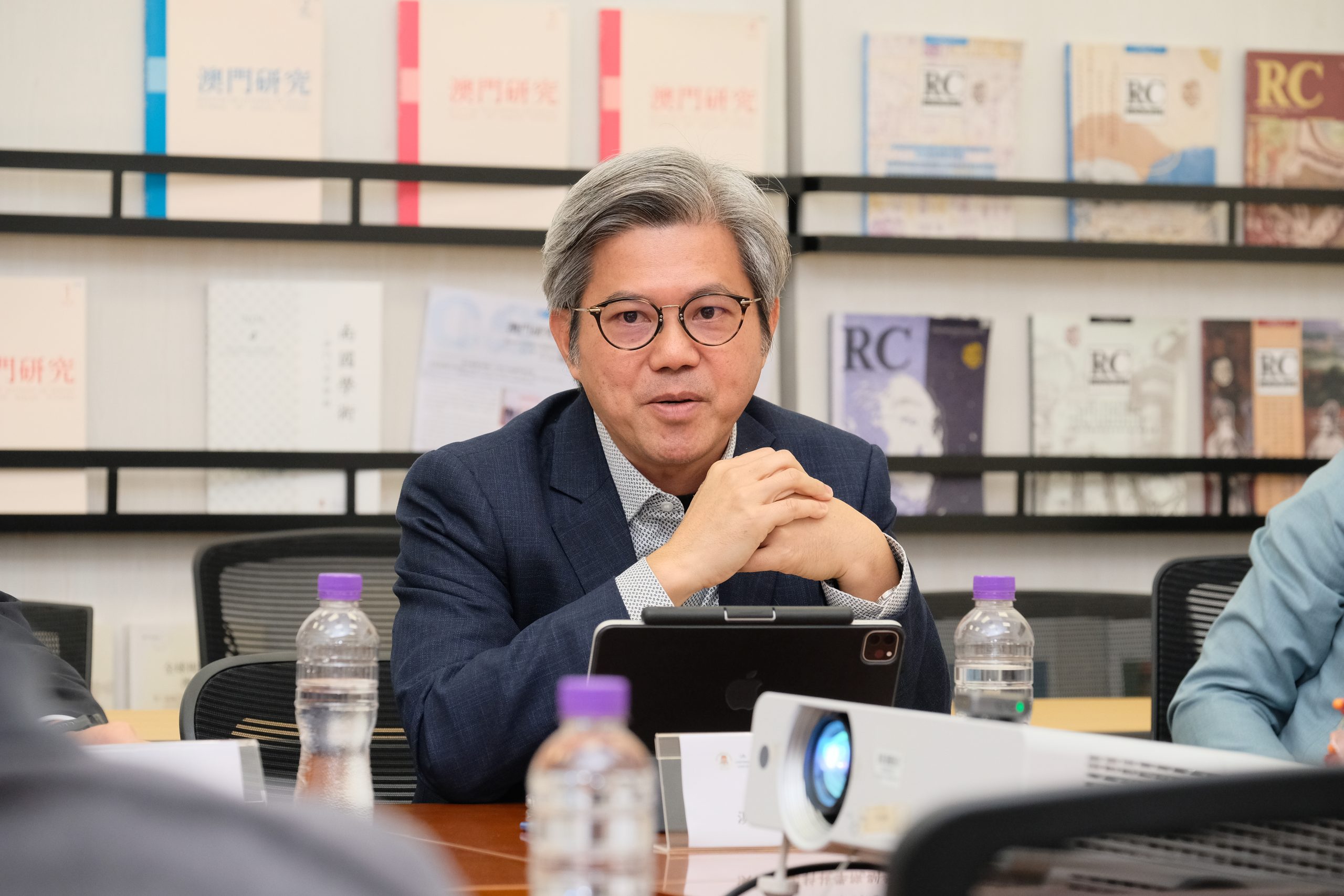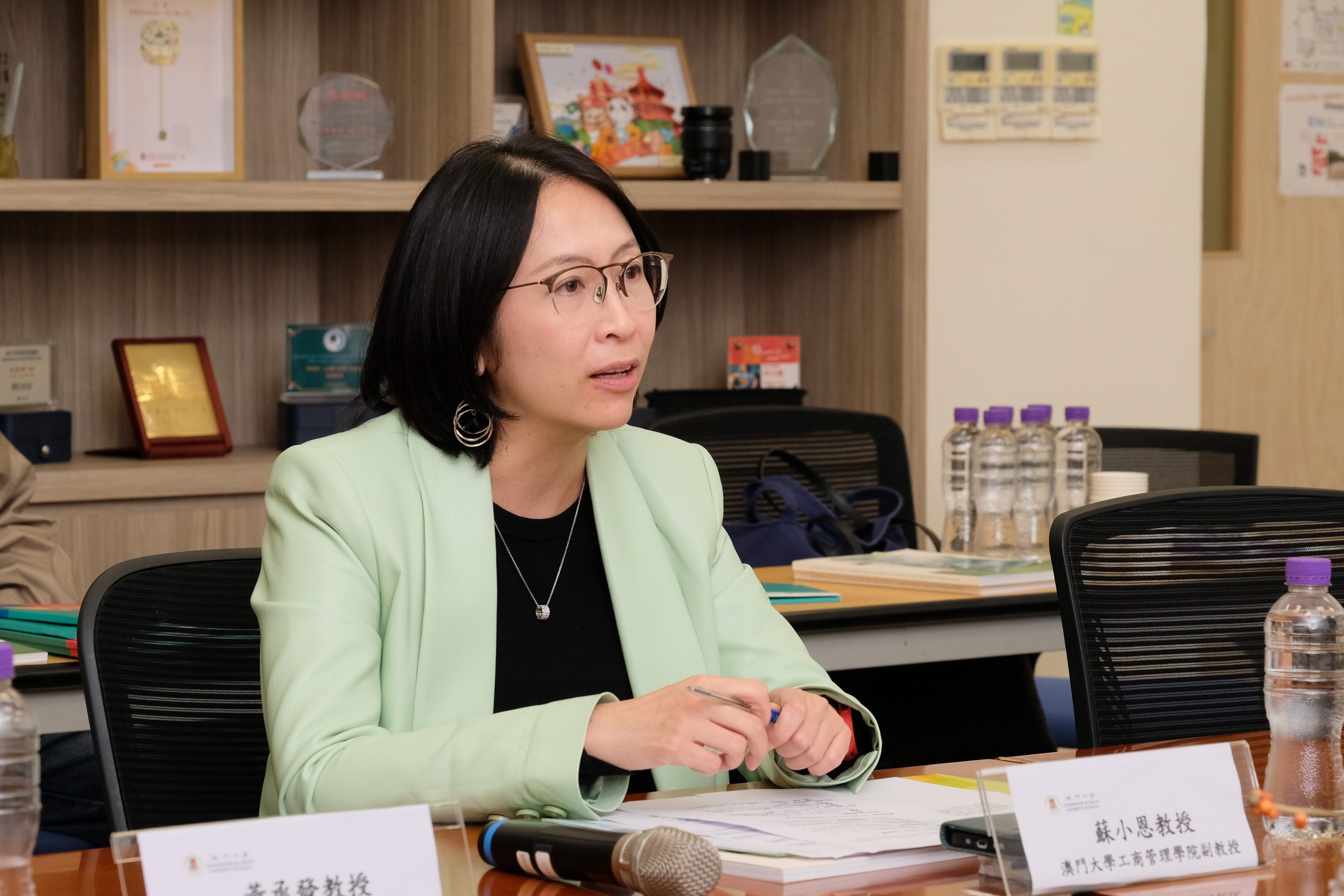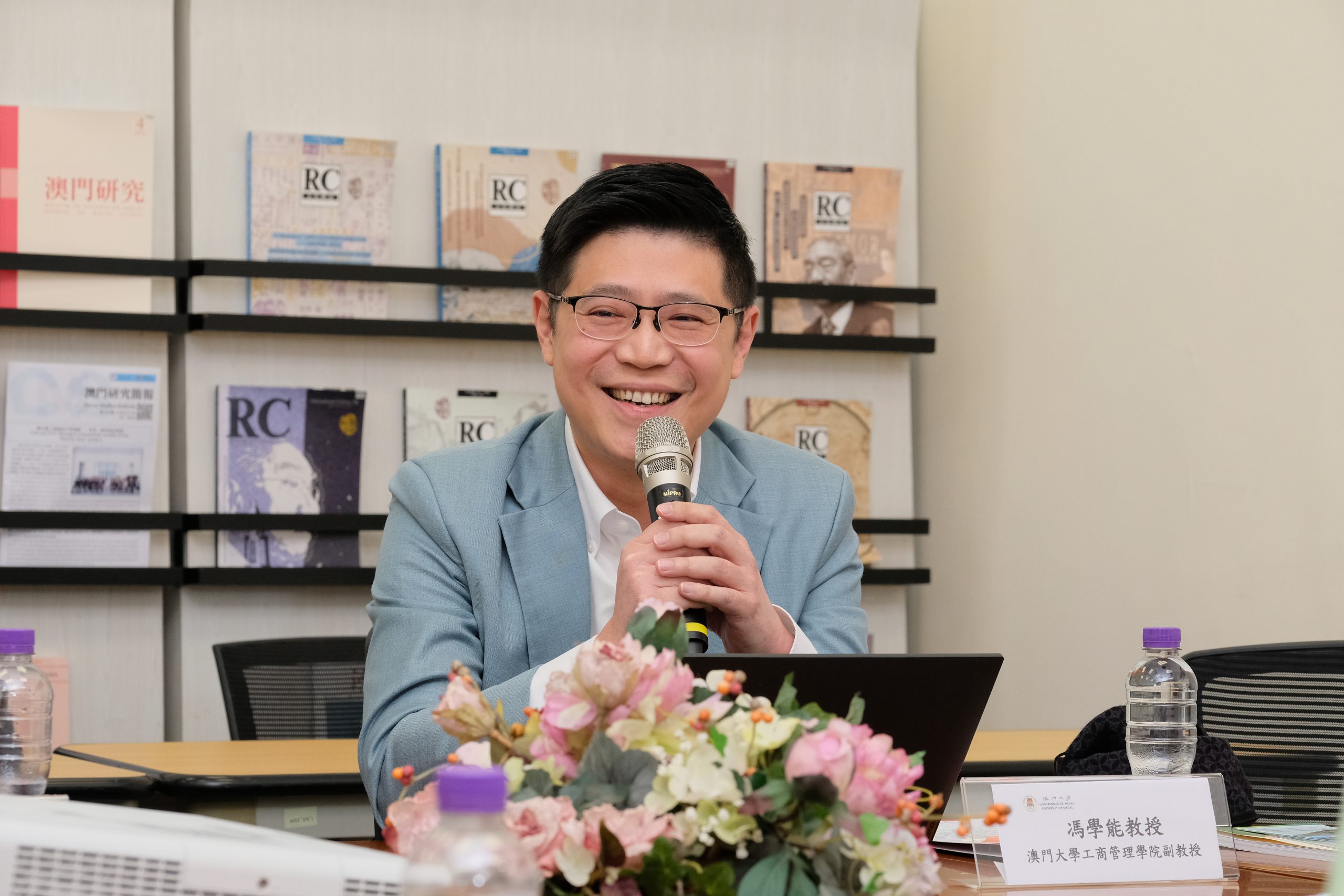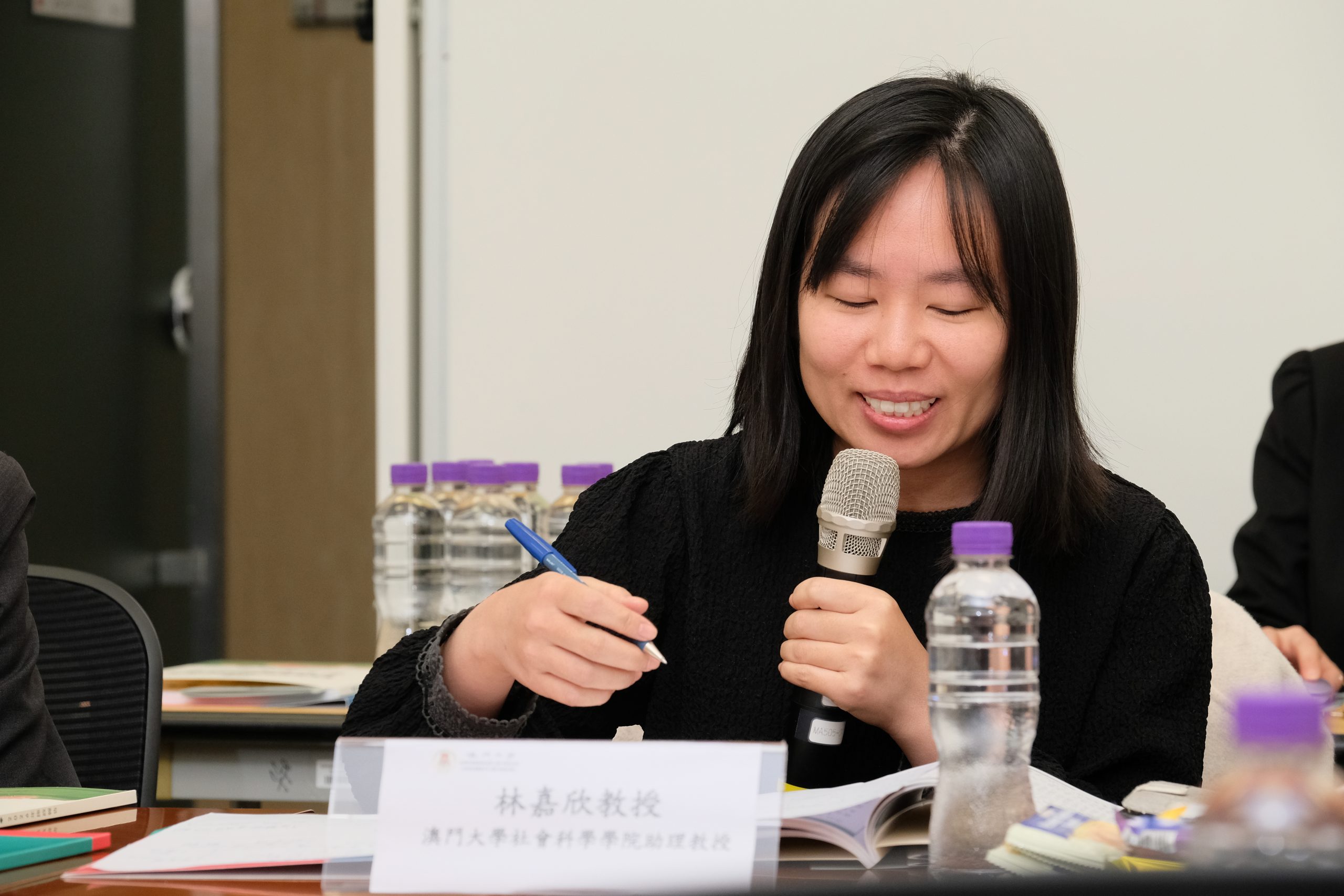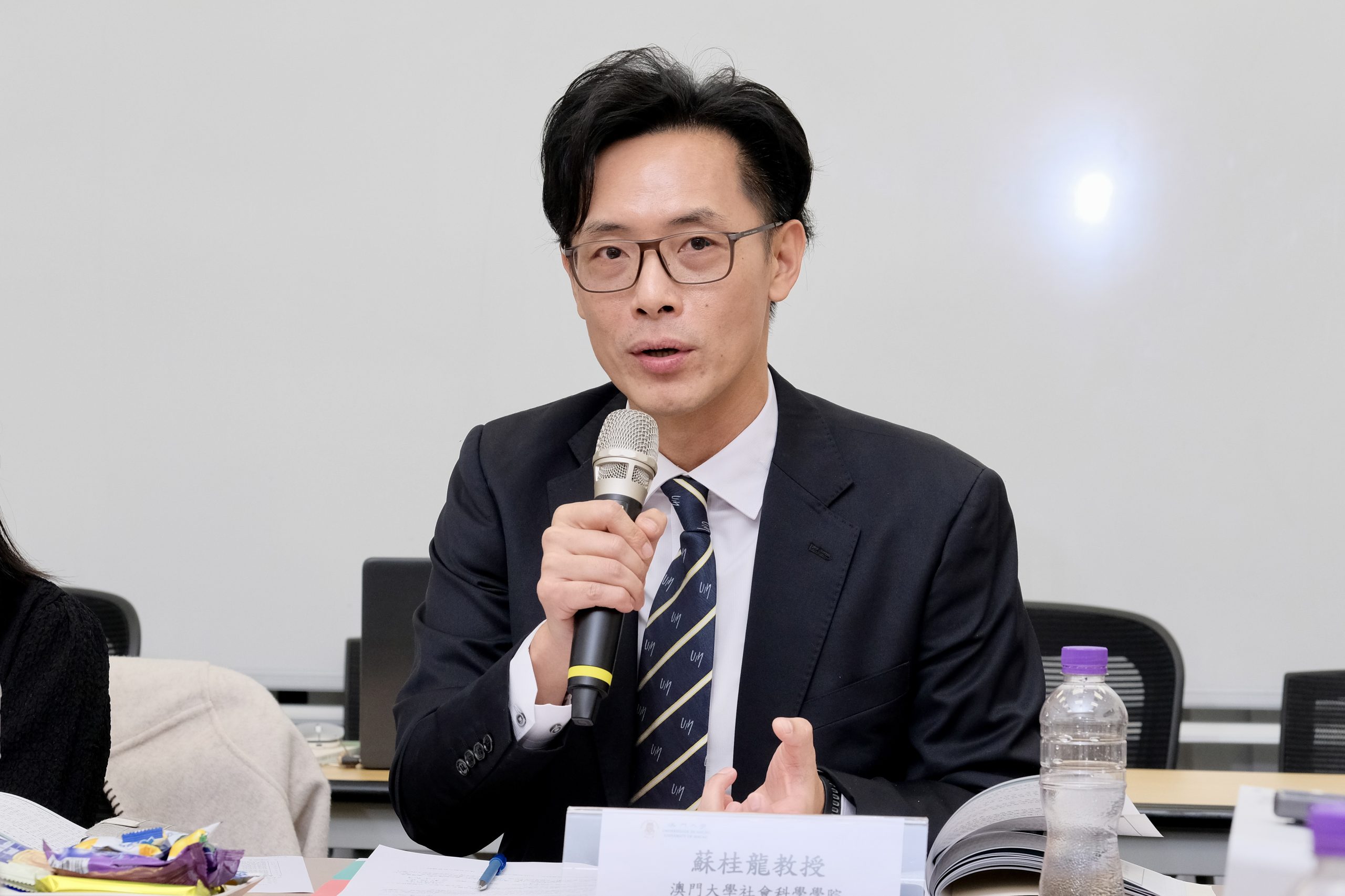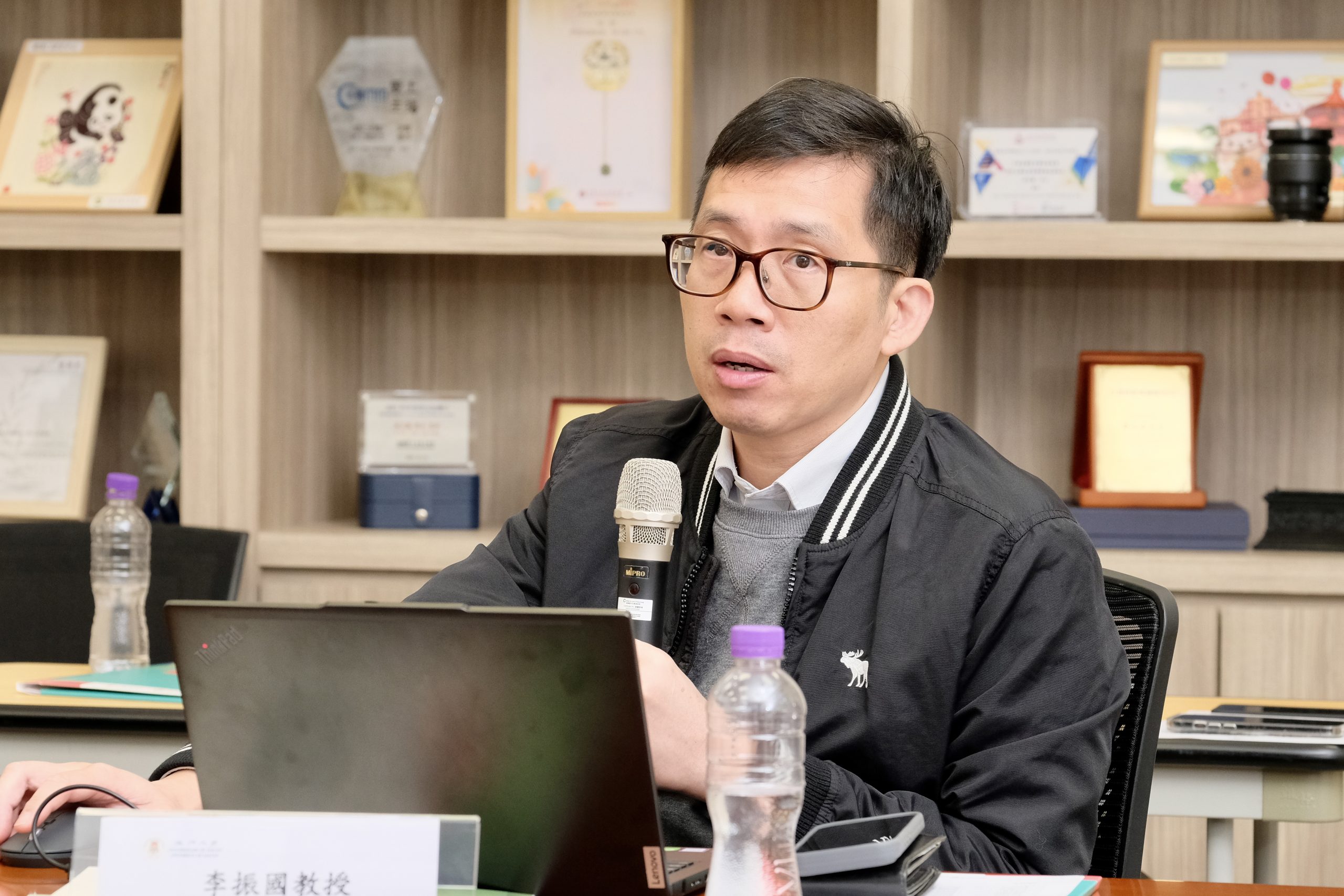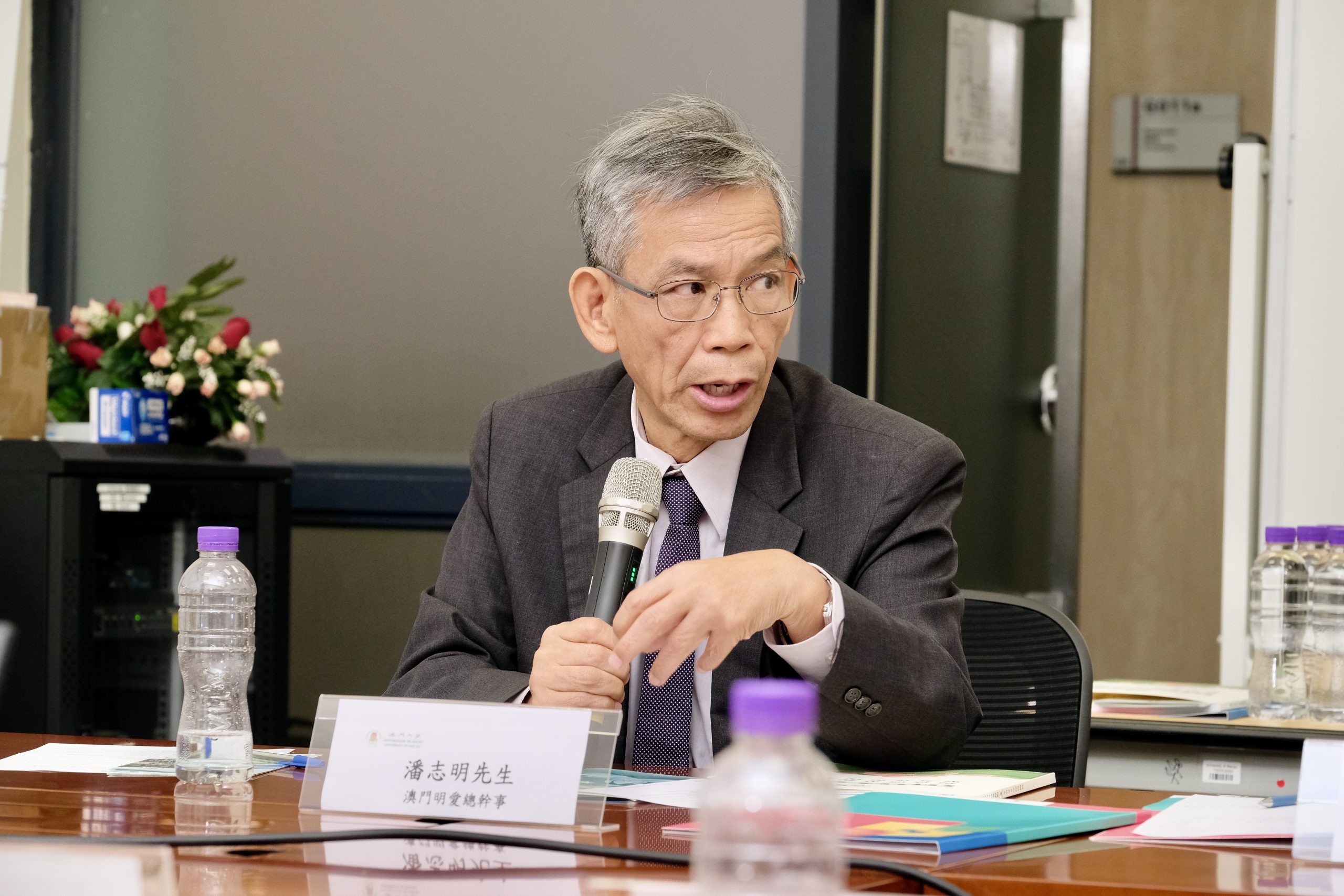The Centre for Macau Studies (CMS) at the University of Macau (UM) held on 19 November the seminar on the “Policy Address for the Fiscal Year 2026 of the Macau SAR Government”. During the seminar, several experts and scholars interpreted the Policy Address for 2026 and made suggestions for the future governance of the SAR government.
The seminar was chaired by Agnes Lam Iok Fong, director of CMS. The experts and scholars agreed with the policy direction of the policy address, titled “Accelerate Reforms and Efficiency with Keen Determination; Overcome Challenges and Promote Diversification with Fortified Efforts”. As the new government begins its term, the participants believe that the main focus should be on appropriate economic diversification and high-quality development. Based on proactively aligning with the national “15th Five-Year Plan’ and formulating the “Third Five-Year Plan for the Macau SAR”, the principles of “One Country, Two Systems” and “Patriots Governing Macau” should be fully implemented. This includes accelerating public administration reform, improving people’s livelihood, and constructing the Guangdong-Macau In-Depth Cooperation Zone in Hengqin, to better integrate into the national development and promote a new development phase for Macau.
Tong Kai Chung, president of Macau Institute of Management, proposed three suggestions to promote Macau’s cultural industries and community economy. First, he suggested exploring historical and cultural capital and transforming it into industrial value by productizing unique community cultural elements to directly drive the income growth of micro and small enterprises. Second, he advocated for combining the cultural DNA of each community to hold characteristic cultural activities and create corresponding consumption scenarios, thereby promoting the growth of catering, retail, and other new business formats. Third, he emphasized that creating a “unique experience” should be the core competitiveness, combined with data analysis, innovative technologies, and the ESG (Environment, Social, and Governance) concept to meet modern consumers’ pursuit of emotional value, thereby enhancing the overall attractiveness of Macau’s tourism.
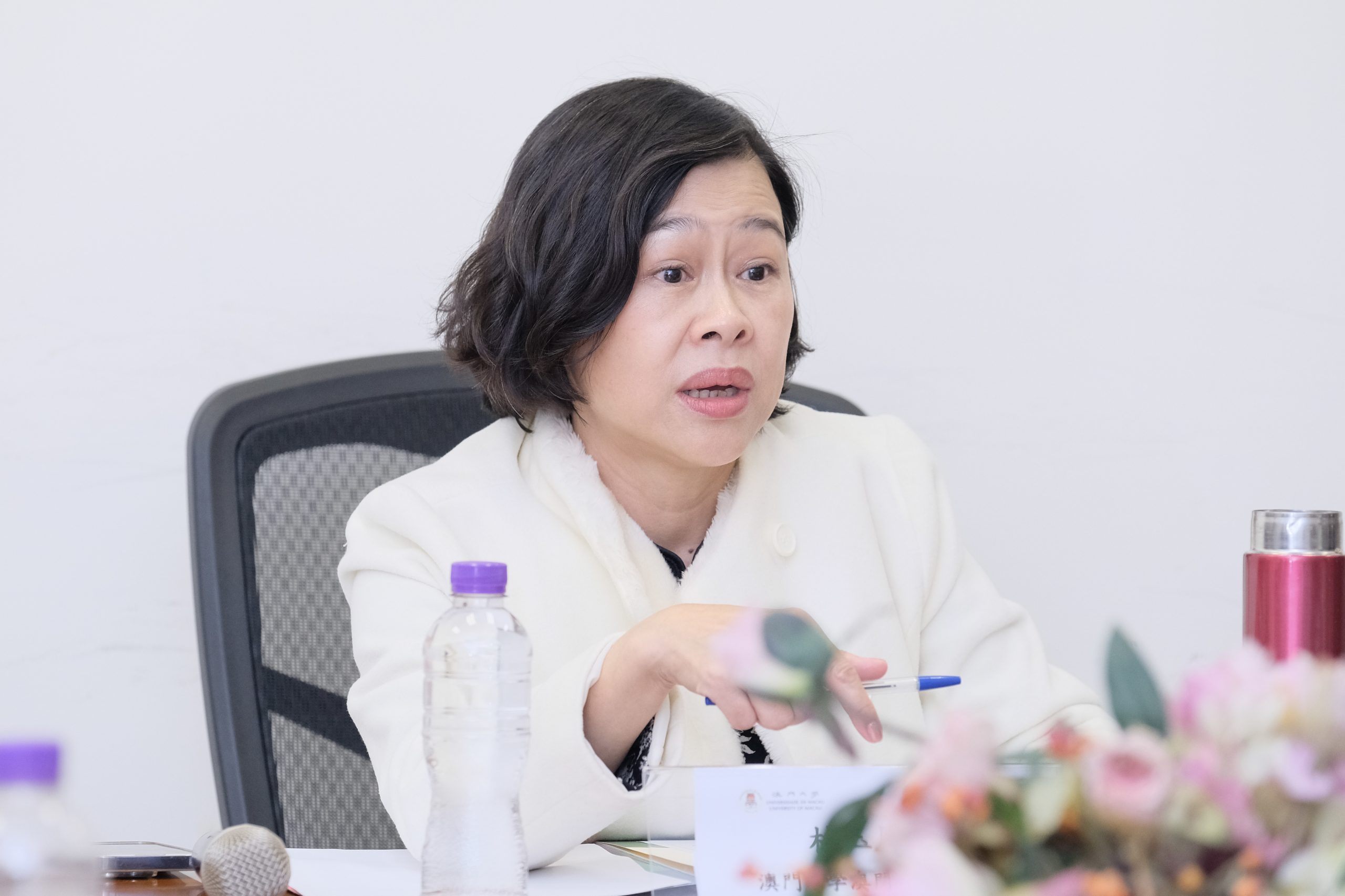
Alfred Wong Seng Fat, associate professor in the Department of Electromechanical Engineering, Faculty of Science and Technology at UM, focused on smart city and urban governance enhancement, proposing three policy suggestions. First, he suggested that a “temporary science and technology park trial zone” could be established in Zone A to accelerate the implementation and testing of innovative application scenarios and accumulate practical experience for future sustainable development. Second, he advocated for promoting data interconnection, which he believes is a key cornerstone for the government to build a “digital city” and a “smart city”, helping to improve urban governance efficiency. Third, he called for accelerating the pace of energy innovation and urban renewal, with specific measures including the modernization and upgrading of the power grid in old districts, planning for charging facilities to cope with the popularization of new energy vehicles, and improving the “all-weather resilient road network” of the bus and light rail systems to enhance the city’s comprehensive response capabilities.
Ricardo Siu Chi Sen, associate professor in the Department of Business Economics, Faculty of Business Administration at UM, focused on economic development and tourism market expansion, proposing three suggestions. First, he suggested strengthening the strategic layout of international visitor sources, recommending the establishment of overseas offices in Southeast and Northeast Asian markets in the future. This would help to strengthen structure of Macau’s diversified visitor source and significantly enhance the city’s internationalization and outward-looking orientation. Second, he called for improving the guidance mechanism for industrial funds. He pointed out that the government’s industrial funds should be transformed from a direct subsidy model to a more strategic “orientation fund”, and that a specific support model needs to be implemented as soon as possible to ensure that local start-ups and SMEs can truly benefit. Third, he advocated for deepening the integration of tourism and the IP (intellectual property) economy, emphasizing that Macau’s local cultural elements should be the core, and efforts should be made to create original Macau IPs with international market potential and export capabilities, thereby comprehensively enhancing the intrinsic attractiveness of integrated resorts and urban tourism.
Kwan Fung, assistant professor in the Department of Economics, Faculty of Social Sciences at UM, discussed three aspects. First, he suggested strengthening the management of economic growth expectations. He pointed out that this year’s gaming revenue and economic growth have shown significant fluctuations, and the government needs to establish a more robust forecasting and evaluation framework to provide clearer signals to businesses and the market to stabilize investment confidence. Second, he advocated for deepening research and classified support for micro, small and medium-sized enterprises, suggesting that by in-depth analysis of their business models, risk tolerance, and market positioning, more targeted policy tools can be formulated to enhance their self-adjustment and sustainable development capabilities. Third, he proposed promoting the cultural and performing arts industries as an important breakthrough for economic diversification. The successful market experience of these industries should be transformed into specific policy directions. By encouraging content creation and extending the industrial chain, growth in non-gaming sectors can be driven, further enhancing the resilience of Macau’s overall economy.
Angus Lam Chi Chiu, associate professor in the Department of Civil and Environmental Engineering, Faculty of Science and Technology at UM, focused on urban renewal, and transportation system optimization, proposing three policy suggestions. First, he advocated for promoting the renewal and reconstruction of old districts. Specific measures should include the full implementation of the Urban Renewal Legal System, accelerating the promotion of key reconstruction projects such as the “Iao Hon Estate”, and actively studying feasible mechanisms for residents of old districts to relocate to new districts. Second, he suggested optimizing Macau’s overall transportation system, including improving the seamless connection between the light rail and buses, conducting in-depth research on the pros and cons of a ride-hailing system, and enhancing the intelligence level and customs clearance efficiency of the Hengqin Port lanes to improve the city’s transportation resilience and convenience.
Amy So Siu Ian, associate professor in the Department of Integrated Resort and Tourism Management, Faculty of Business Administration at UM, made three suggestions regarding cultural planning and tourism diversification. First, she proposed the formulation of a forward-looking “Master Plan for Culture” with a long-term vision of 5 to 10 years to systematically cultivate local creative, performing, and curatorial talents, aiming to create cultural content that is truly characteristic of Macau and can attract international tourists. Second, she suggested making good use of the administrative efficiency after the merger of the Cultural Affairs Bureau and the Sports Bureau to establish an innovative cross-departmental team focused on creating a new city IP with market recognition. Third, she advocated for driving the upgrading of the tourism experience with innovation, suggesting a comprehensive improvement of the convenience of the transportation system, the introduction of a consumption reward mechanism for tourists, and encouraging the local hotel industry to actively use new technologies to enhance Macau’s international competitiveness in the global tourism market.
Lawrence Fong Hoc Nang, associate professor in the Department of Integrated Resort and Tourism Management, Faculty of Business Administration at UM, made three suggestions regarding the structural adjustment of the tourism market. First, he suggested exploring the huge potential of the silver-haired tourism market. He analyzed that the silver-haired generation has strong cultural consumption power, a slower pace of travel, and a greater inclination for in-depth cultural experiences, making it a new source market that Macau should prioritize in the future. Second, he advocated for designing more attractive cultural and tourism products based on consumer demand, pointing out that the silver-haired generation has a higher willingness to pay for content such as concerts, theater performances, and cultural experiences. The government and the industry should cooperate to create a product portfolio that can attract them to stay for a longer period. Third, he suggested adjusting the market mindset, attaching great importance to and establishing a diversified source market structure. He recommended that the government and the industry must re-examine the real needs of international tourists, optimize the service experience, and adjust the market positioning to effectively improve Macau’s competitiveness in the global tourism market.
Cindy Lam Ka Ian, assistant professor in the Department of Government and Public Administration, Faculty of Social Sciences at UM, made suggestions from two aspects: administrative reform and youth policy. First, she suggested strengthening the reorganization of the administrative structure and the inter-departmental coordination mechanism. She emphasized that it is necessary to improve policy execution efficiency and public service quality through clear division of functions and efficient operation of inter-departmental groups. Second, she advocated for improving the management and assessment system for civil servants, suggesting that systematic training should be strengthened, the scope of performance assessment should be expanded, and the inclusion of “service user ratings” in the civil servant evaluation system should be considered, with service quality as a measure. Third, she suggested improving the government’s information dissemination methods to enhance the accessibility of opportunities for youth to participate in public affairs. The government should improve the efficiency of disseminating recruitment and event information, while strictly implementing the principle of “prioritizing the employment of local residents”to further enhance the cultivation of local talents and their willingness to stay in Macau.
Elvo Sou Kuai Long, assistant professor (by courtesy) in the Department of Psychology, Faculty of Social Sciences at UM, proposed three suggestions in the areas of mental health and youth support. First, he suggested improving the planning and definition of local jobs. He pointed out that the policy address mentioned ‘releasing more jobs’ to residents, but its specific meaning is still unclear. The government needs to clearly define which new or transferred positions in which industries can truly benefit local youth and provide effective career matching. Second, he advocated for strengthening mental health support for young people, suggesting the establishment of a more comprehensive mental health service network and promoting the inclusion of mental health education in the regular curriculum. Third, he proposed promoting the all-round development of young people, encouraging them to participate in social services and international exchanges to cultivate their sense of social responsibility and global perspective.
Henry Lei Chun Kwok, associate professor in the Department of Finance and Business Economics, Faculty of Business Administration at UM, proposed three suggestions from the perspectives of financial development and SME support. First, he advocated for promoting financial product and service innovation. He suggested that Macau’s financial institutions should develop more diversified financial products, such as green finance and technology finance, in line with the ‘1+4’ industrial development direction to provide financing support for emerging industries. Second, he called for optimizing the business environment for SMEs. He believes that in addition to providing financial assistance, the government should focus on simplifying administrative approval procedures, reducing compliance costs for SMEs, and providing more business counseling and training. Third, he suggested strengthening financial linkage with the Guangdong-Macau In-Depth Cooperation Zone in Hengqin. He recommended that the two places jointly strive for more financial opening-up policies, explore the establishment of unified financial regulatory standards, and promote the free flow of factors such as capital and talent.
Paul Pun Chi Meng, secretary-general of Caritas Macau, proposed three suggestions from the perspectives of social services and people’s livelihood. First, he called for attention to the resource investment in mental health services. He pointed out that the number of psychiatrists in Macau is currently seriously insufficient and suggested that the government should increase the number of training places for psychiatrists and strengthen early intervention and treatment for youth mental health. Second, he advocated for optimizing services for the elderly and rehabilitation. He suggested that the government consider granting rehabilitation taxi services without public tender to meet the travel needs of people with reduced mobility, and develop more diversified nursing centers to cope with the challenges of an aging population. Third, he suggested exploring the feasibility of cross-border elderly care, recommending that the government study the establishment of elderly care facilities in the Guangdong-Macau In-Depth Cooperation Zone in Hengqin to provide more choices for Macau’s elderly.
